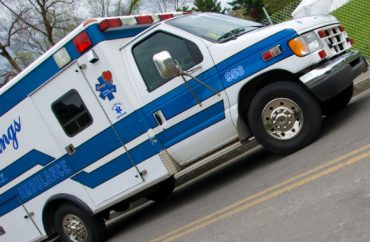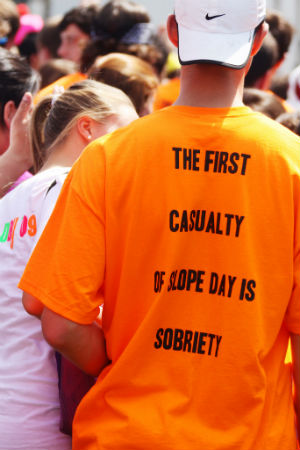
Students often get bad incentives from their colleges and federal education policy.
Common examples of moral hazard in higher ed include giving students ever-greater student loans to pay for ever-higher tuition, a vicious cycle; rewarding PR-hungry student activists who squat for days outside the president’s office by giving into their demands; and believing every accusation of sexual assault, owing to the fear of losing federal money.
But Cornell University is taking moral hazard to a goofy new level by giving its students – all grown adults, not at-risk children – free breakfast.
The reason? The day after spring semester at Cornell is known as “Slope Day,” which doubles as an outdoor concert and an excuse to drink from sunrise through sunset.
Casey Breznick at The Cornell Review gives us some background:
While you cannot expect the result of thousands of stressed out college students letting loose at the same time to resemble anything like order or propriety, the extent of Slope Day’s mayhem is rather astounding. Carts ferry passed-out students across the slope, which by the end of the concert has becomes a sea of garbage. The campus’s health center Gannett resembles a field hospital with scores of students hooked up to IVs piled onto mattresses.
Last year a student was even airlifted to a trauma center.
 In a bid to mitigate the effects of this bacchanalia, this year Cornell is handing out free breakfast sandwiches and fresh fruit to would-be revelers, who often skip breakfast so they can get right to drinking and partying.
In a bid to mitigate the effects of this bacchanalia, this year Cornell is handing out free breakfast sandwiches and fresh fruit to would-be revelers, who often skip breakfast so they can get right to drinking and partying.
Student leaders even promoted the Big Red Breakfast Program (TM) in a Daily Sun op-ed, which Breznick notes was originally titled “Treat Yo’self” and later changed to “Self-Care and Slope Day.”
The leaders somehow think that Cornell trying to mitigate the effects of all-day drinking is preparing students for the real world, rather than encouraging them to ignore boundaries well into adulthood:
Living a balanced life is the lesson most of us end up learning the hard way. While in college, the consequences are somewhat limited. The real world, a world many of us are about to enter, is not so kind. Let Slope Day and the end of the year be a reminder that if Cornell has taught you anything it is the balance of work and play.
Breznick sees this program as an “embarrassing infantilization of Cornell students”:
Sure, no one wants to see people suffering from over-consumption of alcohol, but at the same time students should be held to a higher standard of responsibility, and as the new article title points out, “self-care.” If a student does decide to skip breakfast, consume a lot of alcohol, and suffers the unfortunate consequences, perhaps that student should not just receive a slap on the wrist but some sterner punishment to actually deter the behavior.
It’s a slippery slope that starts with Cornell trying to remove the consequences of dangerous behavior, and leads to “the inanity of the modern college campus—safe spaces, trigger warnings, favorable views towards censorship,” he says:
It starts with a sense of superiority inculcated, at least at Cornell, by the constant refrain that we students are the “best and brightest.” After this comes the sense of entitlement to more services, care, oversight, etc.—for the “best and brightest” truly deserve it, do they not? This is where free breakfast on Slope Day comes from. And, after having some if not all of their demands met, bored entitled students turn to greater demands, ones which necessitate not just a few breakfast sandwiches but, for example, the curtailment of civil liberties with which they disagree with.
The better antidote to Slope Day might be charging students with drunk and disorderly behavior, sending them to jail and putting a notation on their transcript.
Read Breznick’s piece, the Daily Sun op-ed and Slope Day basics.
Like The College Fix on Facebook / Follow us on Twitter
IMAGES: iamchenny/Flickr, Matt Hintsa/Flickr






Please join the conversation about our stories on Facebook, Twitter, Instagram, Reddit, MeWe, Rumble, Gab, Minds and Gettr.